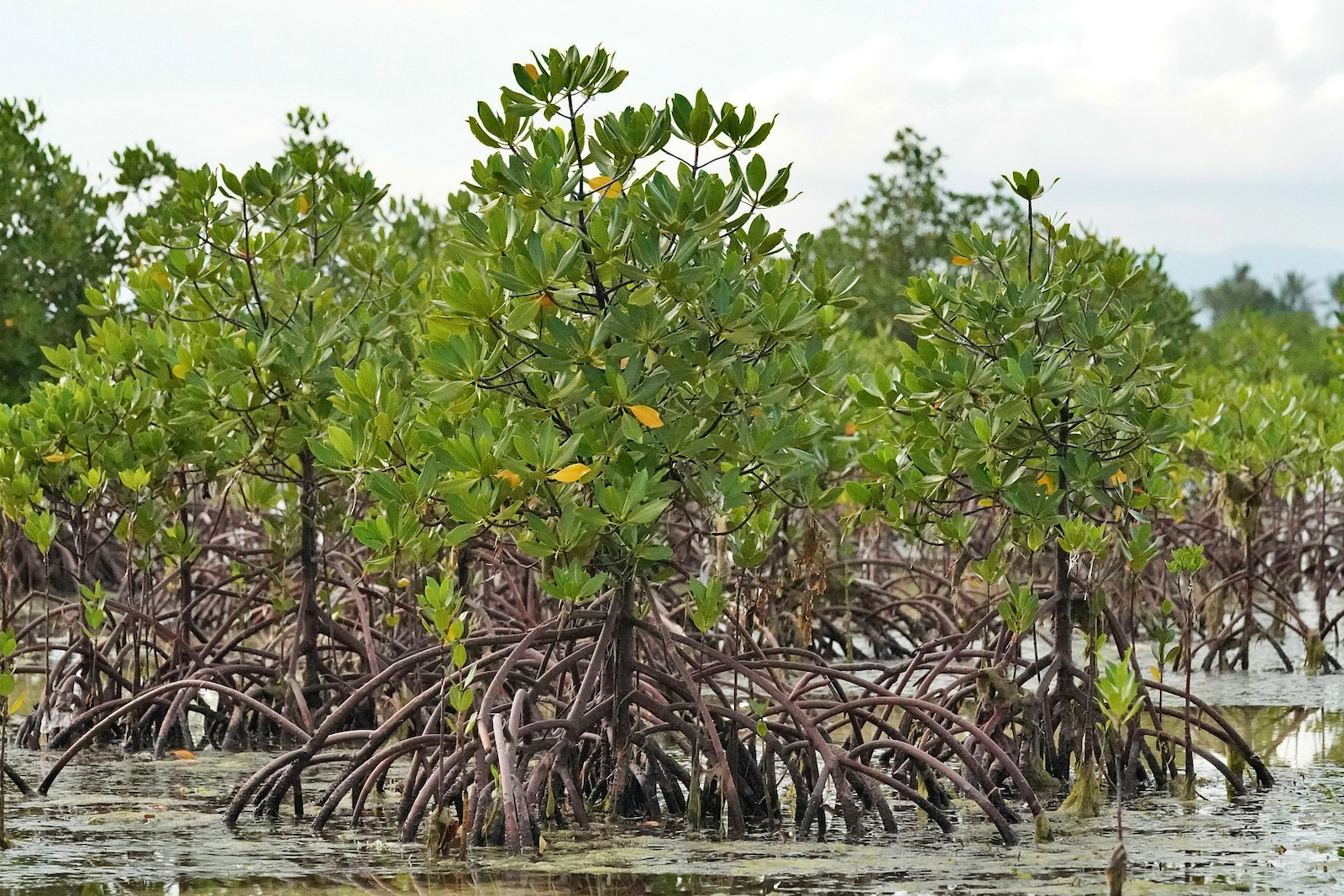
Nigeria Moves to Restore Mangrove Ecosystems in Niger Delta
The Nigerian government has said that it is making plans to create a strategy that would lead to the restoration of mangroves in the Niger Delta that have been severely damaged by continuous oil spills.
Mohammad Mahmood Abubakar, the minister of environment, has recently held an expert meeting on the restoration of mangroves in the Niger Delta.
The meeting, which was attended by experts from more than 20 different institutions and supported by the United Nations Environment Programme (UNEP), brought new momentum to the restoration efforts and paves the way for healthy ecosystems and successful environmental remediation of areas affected by oil spills.
The bulk of Nigeria’s crude oil lies beneath farmlands and rivers in the Niger Delta region. But more than six decades of oil spills and gas flaring have transformed the region, home to over 6.5 million people, into one of the most polluted places on Earth.
In 2011, the UNEP commissioned by the Nigerian government conducted an assessment on the impact of oil extraction in the region and made recommendations in 2011.
The report found that both soil and groundwater have been severely contaminated even as public health was threatened by contaminating drinking water and carcinogens.
Part of what it also discovered was that the Delta ecosystems such as mangroves had been utterly devastated and recommended that the environmental restoration of Ogoniland would require a coordinated effort on the part of the government at all levels, industry operators, and local communities.
After the findings, the government set up the Hydrocarbon Pollution and Remediation Project in 2016 to restore the environment and the livelihood of the local people.
An old story
This is not the first time the Nigerian government has pledged to restore degraded mangroves in the Niger Delta. In 2020, it announced plans to launch a National Mangrove Restoration Project as one of the measures to ensure a sustainable environment and livelihood for people living in the region.
Barrister Sharon Ikeazor, Nigeria’s minister of state for environment, said the project would be implemented through Wetlands International (Africa) and the Regional Partnership for Coastal and Marine Conservation.
She announced, during the commemoration of the 2020 International Day for the Conservation of the Mangrove Ecosystem, that Nigeria’s government had shown a commitment by signing and ratifying several multilateral agreements.
Together, these agreements hold that countries are responsible for protecting and conserving their environment and natural resources and for using them in a sustainable manner with the aim to satisfy human needs according to the carrying capacity of the environment.
They require that contracting parties take all appropriate measures to prevent, reduce, combat, and control pollution and to ensure the sound environmental management of natural resources in the areas of concern.
To meet their obligations, the contracting parties are called upon to cooperate with relevant international, regional, and sub-regional organizations to establish and adopt recommended practices, procedures, and measures designed to fight pollution.
Ikeazor said that Nigeria has joined and is committed to the 30 by 30 Global Ocean Alliance, a UK-led initiative, aimed at protecting 30 percent of the global oceans that lie close to shorelines by 2030.
But the impact is not being felt by communities that continue to accuse oil companies of being responsible for destroying their livelihoods and contaminating mangroves through leaks from oil exploration. The people of the region have practically watched their futures drain away because of oil spills.
On March 14, a major crude oil pipeline in the region ruptured, spoiling the community.
The spill left one dead and several others hospitalized in its wake. Mangrove ecosystems were destroyed. Opuama is one of the communities in the Delta State.
Nigeria has the largest mangrove ecosystem in Africa and the third-largest in the world, sprawling around 10,000 square kilometres, from Badagry in the West to Calabar in the South, according to the United Nations REDD Programme.
Over 60 percent of these mangroves, which is equivalent to 6,000 square kilometres, are found in the Niger Delta region and are very important to communities who have lived around them and use them in a variety of ways to ensure their food sovereignty with seafood, meet their housing needs with the wood obtained for the construction of homes, and use the various products of mangroves for their livelihoods.
While they protect shorelines from damaging winds, waves, and floods, reduce coastal erosion, and improve water quality by filtering pollutants and trapping sediments from the land, they provide habitat for diverse animal and plant species.
It is hoped that the latest move by the Nigerian government will lead to the restoration of mangrove ecosystems in the Niger Delta so local residents can have a sense of belonging.

